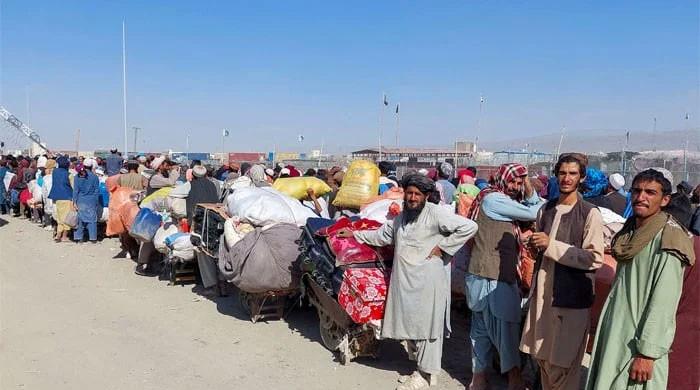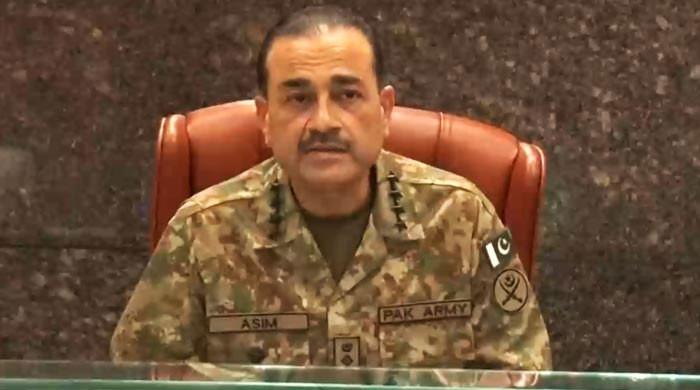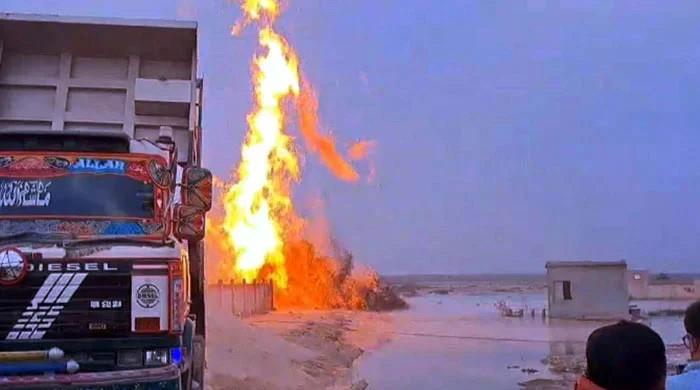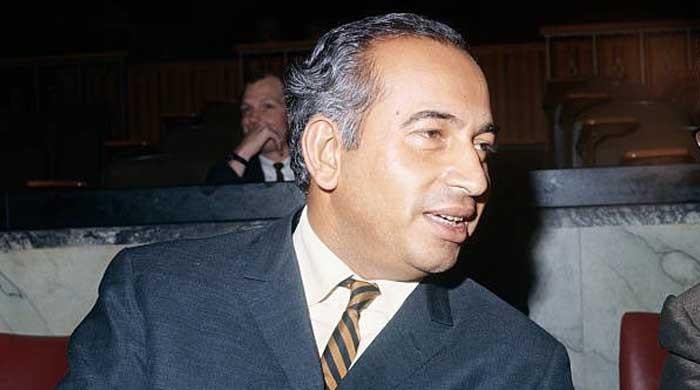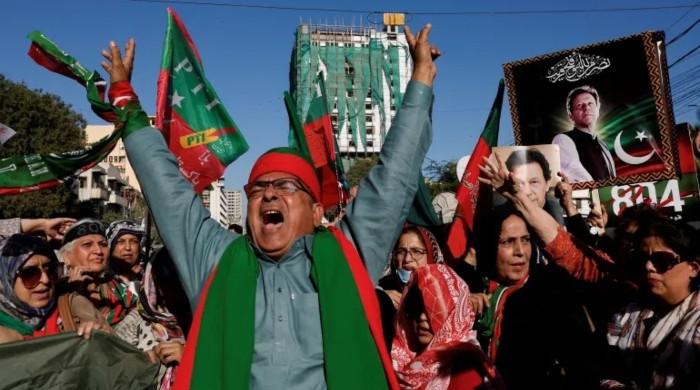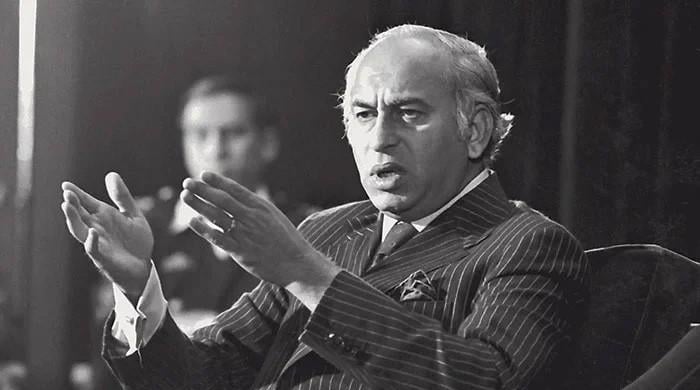Bilawal draws world attention to health emergency in Pakistan
Bilawal Bhutto says Pakistan faced a health emergency following widespread flooding in the country
September 24, 2022
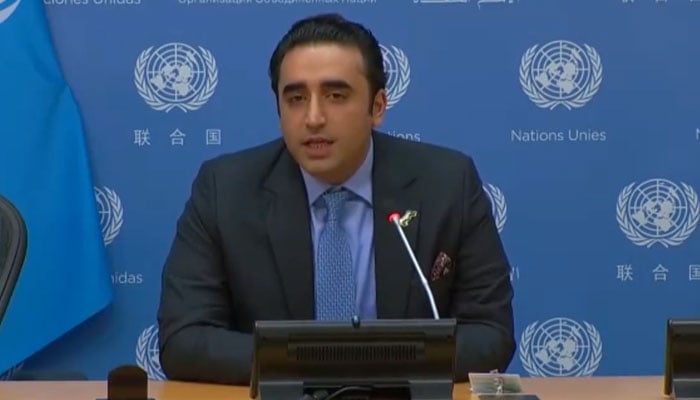
- Bilawal says Pakistan has got an opportunity to rebuild its infrastructure following the flash floods.
- Says Pakistan faces a health emergency across the flood-hit areas.
- Says the flooding has impacted over 33 million Pakistanis.
Foreign Minister Bilawal Bhutto-Zardari said Pakistan sees the flood-caused crisis as an opportunity to build back the country in a better and more climate-resilient manner. The foreign minister also highlighted what he called 'the health emergency' that flood victims currently face following the massive flooding.
Bilawal said this while addressing a press conference at the United Nations to brief media about Prime Minister Shehbaz Sharif's address at the United Nations General Assembly's 77th session. The foreign minister highlighted the flood crisis Pakistan is facing. He also shed light on the looming threat of waterborne diseases and stressed the country's resolve to build up the infrastructure afresh.
"Prime Minister Shehbaz Sharif, addressing the United Nations General Assembly, passionately pleaded the case for Pakistan's victims of the current climate catastrophe, the monster monsoon and flooding," he said. "The PM expressed the compounding nature of the tragedy."
Bilawal said that Pakistan faced the devastation of the flooding that has already affected 33 million people and left a third of the country under water. "This is not only a climate catastrophe but also a health catastrophe. It is a health emergency, in fact, with water-borne diseases spreading across the affected areas," he stressed.
To cap it all, he continued, that crops on millions of acres were damaged, so Pakistan fears food insecurity. Finally, the economic difficulties that will result from this devastation, he said. The minister said a rough estimate indicates the devastation has caused Pakistan an economic loss worth $30 billion.
He said the premier called for global action and unity to confront climate change and advocated the need to address the issue of loss and damage. The PM also talked about the situation in Afghanistan and passionately expressed his desire for Pakistan to be at peace with its neighbours. He said the PM also demanded that India walk back from the unilateral and illegal action of August 5th, 2019—the attempt to undermine the internationally disputed status of the region, followed by attempts to undermine the demographic nature of the only Muslim-majority region under Indian control.
He emphasized that the Indian government's attempt to turn the Muslim majority into a minority in their own land is illegal under international law.
FM Bilawal criticized India’s unilateral and illegal measures of August 5, 2019 to annex Indian Illegally Occupied Jammu and Kashmir (IIOJK), and to impose, what the Indian government has ominously called, a “Final Solution”, saying New Delhi had removed the political space for a peaceful and negotiated solution that could be acceptable to all parties.
In his address to the UN General Assembly, PM Shehbaz stated that the denial of the inalienable right of the Kashmiri people to self-determination is at the root of this long-running dispute. Shehbaz had said that India's illegal and unilateral actions on August 5, 2019, to change Jammu and Kashmir's internationally recognized "disputed" status and to change the demographic make-up of the occupied territory further harmed prospects for peace and heightened tensions in the region.
Bilawal reiterated that Pakistan is committed to supporting and helping the victims of this climate catastrophe in this initial rescue and relief phase. He said that Pakistan hopes to complete the process of its rehabilitation and reconstruction in a greener way.
"We hope to rebuild a more efficient and sustainable infrastructure, be it our irrigation infrastructure, communication infrastructure, or agriculture infrastructure," he said. He emphasized that Pakistan views this crisis as an opportunity to rebuild in a better and more climate-resilient way.
Bilawal called for “climate justice” for Pakistan, as this disaster has clearly been caused by climate change and global warming.
“This is a tragedy of monumental proportions,” the foreign minister told journalists at UN Headquarters in New York.
Extreme heat this summer melted many of Pakistan’s glaciers, with early flood outbreaks, and the heat intensified precipitation led to above-average rains.
Pakistan, he said, estimated that the total flood damage was over $30 billion, 10% of its gross domestic product (GDP), with one-third of the country under water.
Over fifteen hundred people were killed and thousands injured. Thirty-three million have been affected; 6 million are destitute. Over a million homes, 7000 kilometers of roads, 300 bridges and 5 million acres of crops/orchids were destroyed.
With a minuscule contribution of 0.8% to the Global Green House Gas (GHG), Pakistan, for many years, is being listed among the top 10 countries that are most vulnerable to the impacts of climate change.
At the same time, FM Bilawal said Pakistan was working on plans for rehabilitation once the flood waters recede, and would rebuild the lost infrastructure in a much better way so that they could withstand future natural calamities.
The August 30 joint UN-Pakistan Flash Appeal of $160 million was being upgraded, and when the damage estimates are completed, a donors conference will be held to raise funds for rehabilitation and reconstruction in the devastated areas, he said.
The foreign minister said Pakistan believes that engagement with the Afghan Interim Government was essential to promote the international community’s aims to promote human rights, including women’s rights, political inclusivity and effective and comprehensive action against the terrorist organizations in Afghanistan.
Pakistan, he added, stands for women’s right to education.
FM Bilawal criticized India’s unilateral and illegal measures of 5 August 2019 to annex Indian Illegally Occupied Jammu and Kashmir (IIOJK), and to impose, what the Indian government has ominously called, a “Final Solution”, saying New Delhi had removed the political space for a peaceful and negotiated solution that could be acceptable to all parties.
— Additional input from APP




